Dr. Ryan John Urbanowicz was born in New Milford, CT in 1982. Parents Maureen and Gary Urbanowicz raised him in the town of Sherman, CT. His father Gary, a former Air Force Top Gun pilot, passed away in 1995 after battling leukemia and lymphoma. His mother Maureen is currently retired from her long time position as an elementary school teacher at the Sherman Elementary School. Ryan and his younger brother John became involved in the Boy Scouts of America (BSA) as youths, each earning the Eagle Scout award. Ryan is still an active BSA adult leader, working distally with his hometown boy scout troop.
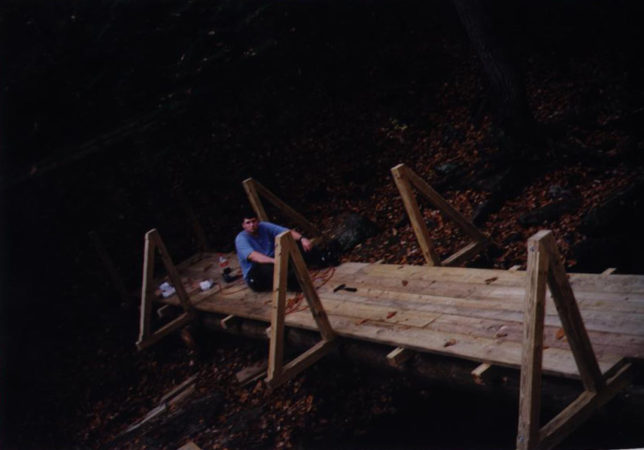
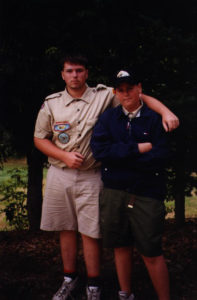
[Left: Eagle scout project (1999), Right: Ryan and his brother John in Boy Scouts of America (1999)]
In high school, Ryan pursued his growing interest in medical research by initiating a simple chemical carcinogenesis research project at the Danbury Hospital Diagnostic Cytogenetics Lab from 1996-1998, and Boehringer Ingelheim R&D in Ridgefield CT, in 1999. He entered his work into the local and regional science fairs including the Connecticut-based Science Horizons Science Fair programs throughout high school and received a number of awards including best overall project his senior year.
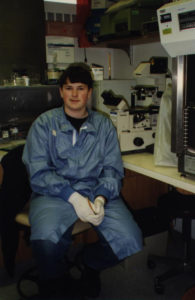
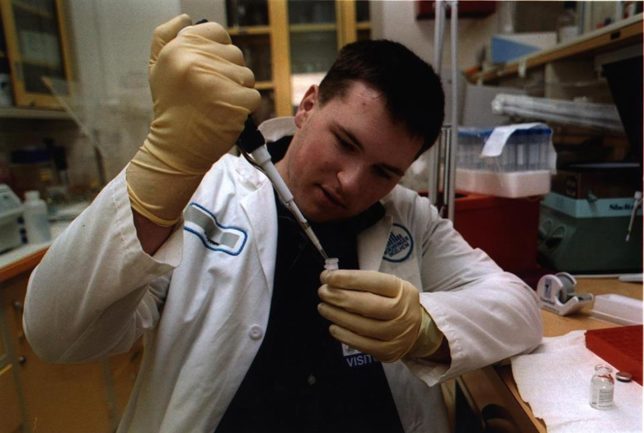
[Left: Cytogenetics Lab (1997), Right: Boehringer Ingelheim (2000)]
After graduating from New Milford High School in 2000, he moved to Ithaca, NY where he began his degree in Biological Engineering (BEE) at Cornell University. At Cornell, Ryan concentrated in courses related to biomedical engineering, and pre-med biology, chemistry, and electives. Additionally, he pursued courses in psychology, ecology, music, and design. Beyond academics, Ryan joined the Alpha Phi Omega co-ed community service fraternity, engaged in his environmental interests through the Ecology House program, and explored public service trough the Cayuga Heights Volunteer Fire and Rescue department where he trained to become a volunteer firefighter. He also volunteered at the local emergency room training along side nurses, and became certified as a EMT-B in 2002, and an EMT-I in 2004 and remaining with Fire and EMS department until his departure from Ithaca in 2005.
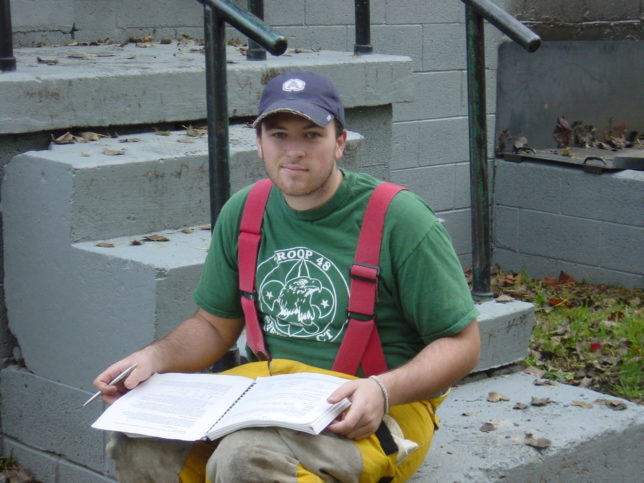
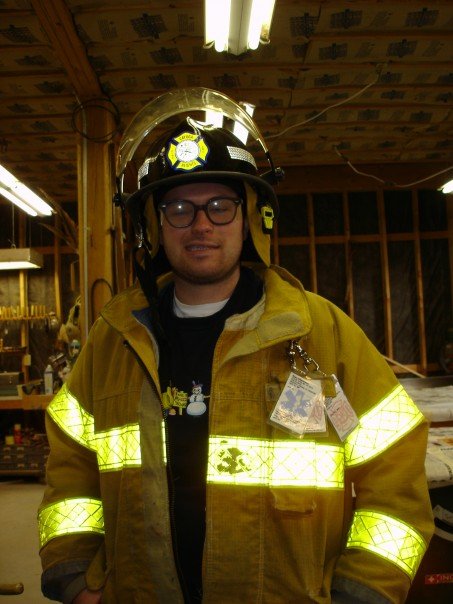
[Left: Fire department training (2002), Right: Hanging out after EMT call (2004)]
In 2003, he obtained a summer internship exploring environmental engineering and lake management under Larry Marsicano at the Candlewood Lake Authority in Sherman, CT. In 2004, he was awarded a New Horizons summer research fellowship, and worked under Dr. Ruth N. Collins in the Molecular Medicine Department at Cornell studying yeast genetics and molecular biology techniques. Interestingly he was tasked with biologically evaluating predictions made by a new bioinformatic prediction algorithm using yeast. Ryan graduated from Cornell in 2004 with a Bachelors of Biological Engineering and a Minor in Biomedical Engineering.
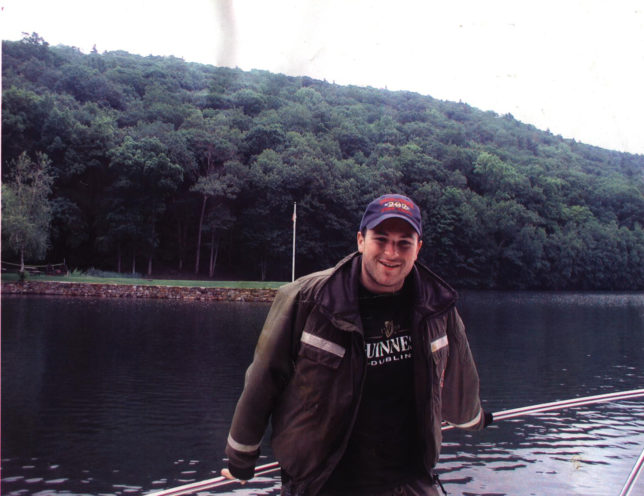
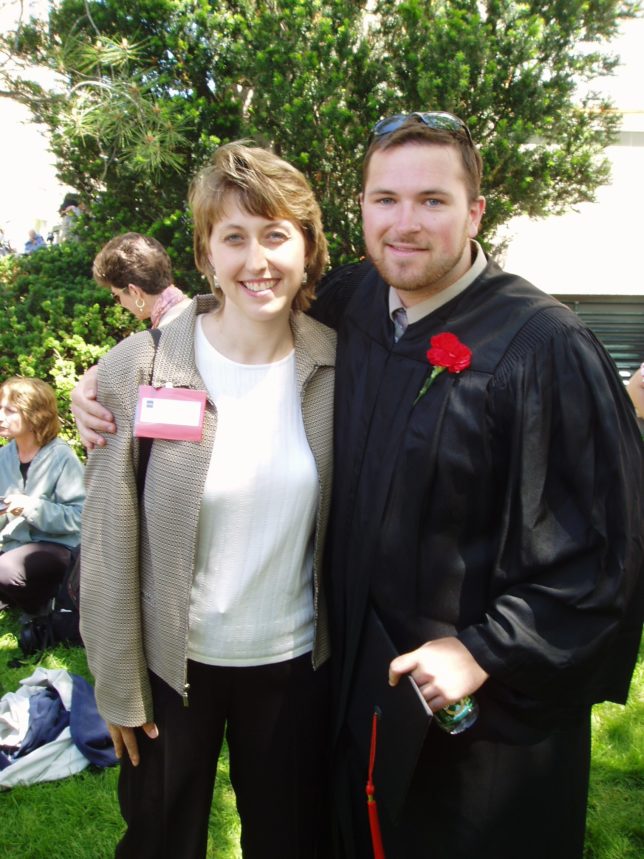
[Left: Patrolling Candlewood Lake (2003), Right: Standing with undergraduate adviser at Cornell graduation (2004)]
He then began a Masters of Engineering at Cornell under the supervision of advisors Richard A. Durst (Ph.D.) and Antje J. Baeumner (Ph.D). This work was supposed to be focused on the development of a microfluidics device extending a test-strip assay for botulinum and cholera toxins which had been developed by a graduated doctoral student. This was in the wake of the 9/11 defense grants and fears of biological or chemical attacks. Unfortunately, attempting to replicate the published test-strip assay turned out to be impossible, Ryan’s work unintentionally uncovered what ambiguously turned out to be either poor science or fraud, leading to the retraction of the publication in question. Despite this disappointing outcome, this served as an invaluable experience and lesson for future research.
In the Fall of 2005, Ryan began his PhD in the Molecular and Cellular Biology (MCB) Program at the Geisel School of Medicine at Dartmouth College in New Hampshire. Afforded the opportunity by MCB, Ryan spent his first year rotating in the labs of Jason H. Moore (Ph.D.), Mark A. Israel (M.D), and Constance E. Brinckerhoff (Ph.D.) for three months each, working on genetic data simulation, human microRNA expression, and MMP-1 expression in response to growth factors, respectively. In the summer of 2006 Ryan joined the lab of Dr. Jason H. Moore in the genetics department, studying bioinformatics and the development of algorithms/tools for modeling, data mining, and classification applied to the realm of epidemiology and human genetics.
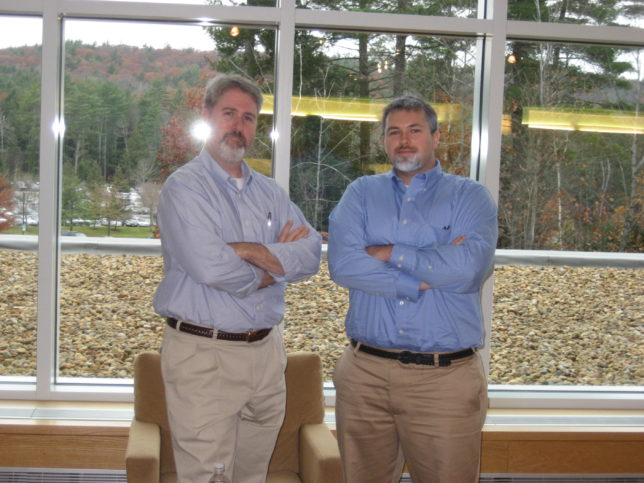
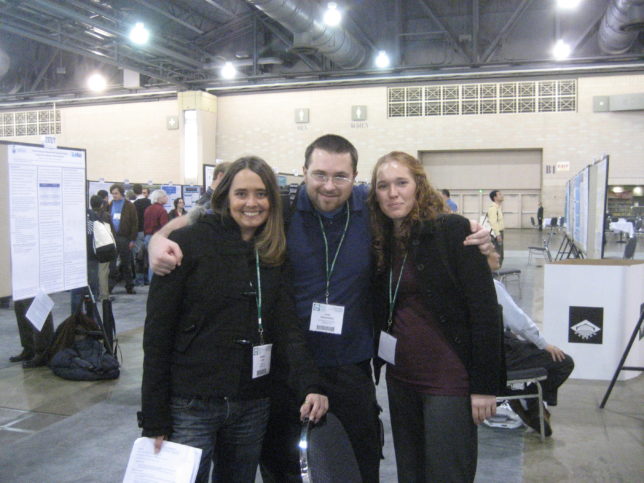
[Left: Ryan dressed up like his advisor, Jason H. Moore (2009), Right: At ASHG with lab-mates Krissy Patten and Chantel Sloan (2008)]
For his thesis project, Ryan sought to address two phenomena which complicate the process of connecting genotypic factors with a disease endpoint. These phenomena include epistasis and genetic heterogeneity. At the suggestion of his mentor, Dr. Moore, Ryan began to explore Learning Classifier Systems (LCS) as a possible solution to the particular challenges posed by heterogenous patterns. Early work exploring and developing the LCS algorithm concept were successful, and suggesting this line of investigation to hold great promise. Ryan was also welcomed by the small but tightly knit international community of researchers interested in rule-based machine learning strategies such as LCS, thanks in part to his 2009 LCS review publication.
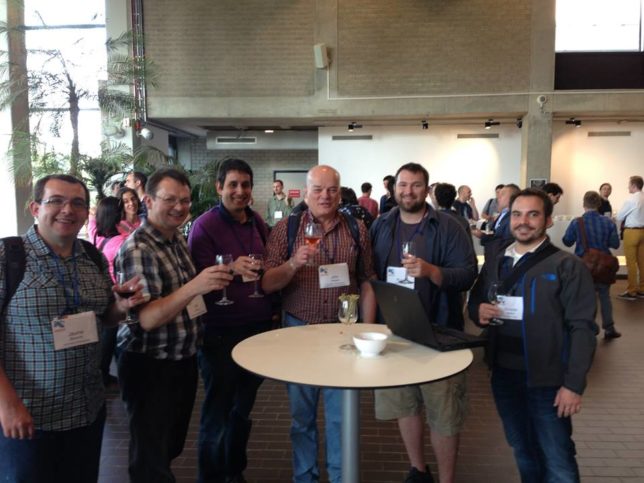
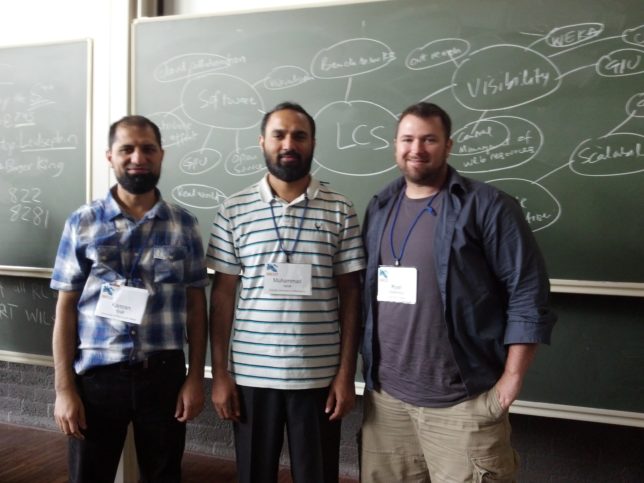
[Left: With fellow LCS researchers (2013), Right: With LCS workshop co-organizers (2013)]
While a graduate student at Dartmouth College, Ryan played as a drummer in the band (The Scourge), and later played guitar and sang with fellow lab-mate and amateur musician Eli Piette. While with the Scourge Ryan helped record four original songs which can heard by clicking here.
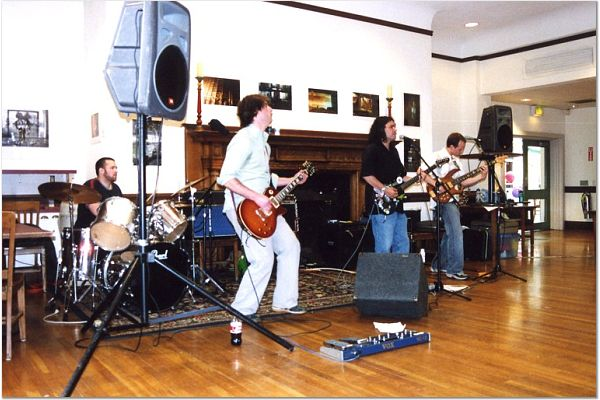
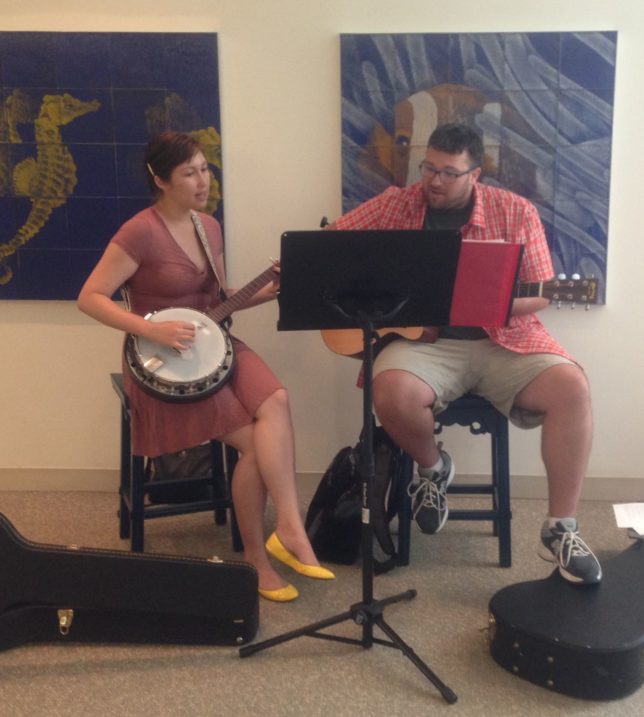
[Left: Playing drums with ‘The Scourge’ (2006), Right: Playing guitar with Eli Piette (2014)]
In 2008, Ryan got involved in the local children’s science museum, the Montshire, initially partnered with Dartmouth College to teaching lessons at regional elementary schools as part of a science outreach program. This led him to get involved with the “camp-in” program which brought in groups of students and scouts from across VT and NH to explore the museum and partake in one of four educational sessions (i.e. Star Lab, Chemistry, Leaf-Cutter Ants, and Night-Walk). Ryan taught astronomy in Star Lab until he left Dartmouth in 2015.
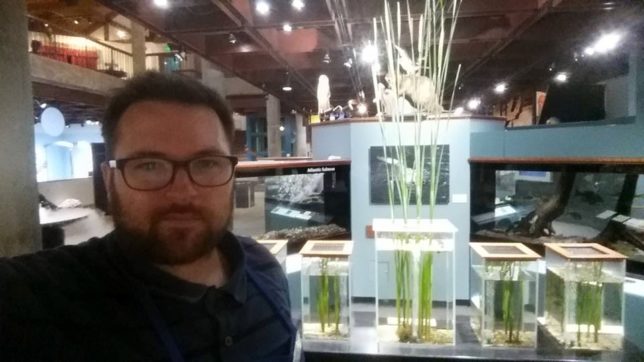
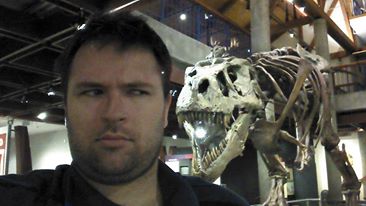
[Left: On the floor of the Montshire Museum (2014), Right: “I feel like something is behind me…” Visiting exhibit (2014)]
Ryan’s work as a PhD candidate yielded 11 first author publications, two of which received best paper awards. Ryan successfully defended his thesis entitled “The Detection and Characterization of Epistasis and Heterogeneity: A Learning Classifier System Approach” in February of 2012.
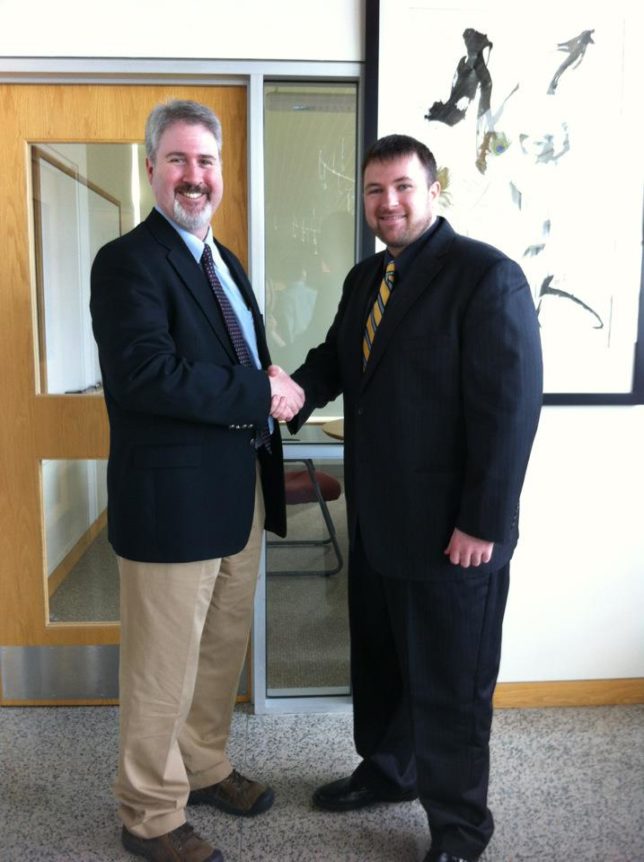
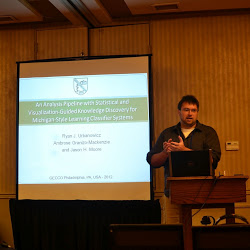
[Left: With Jason H. Moore after thesis defense (2012), Right: Presenting research at GECCO (2012)]
Immediately following his defense, Ryan began his position as a post-doctoral research fellow continuing in the lab of Dr. Jason H. Moore in order to further pursue the development of a bioinformatics-tuned learning classifier system, and expand his education to biostatistics. As a post-doc, Ryan volunteered at the Dartmouth Hitchcock Medical Center singing and playing guitar weekly. In this time as a post-doc, Ryan took his promising thesis work on LCS algorithms in single nucleotide polymorphism (SNP) association analyses and began to assemble his own rule-based machine learning algorithm which he called the Extended Supervised Tracking and Classifying System or ExSTraCS. Ryan focused on bringing together the algorithmic concepts he had worked on in his thesis, as well as expanding the methodology to handle different data types, classification or regression problems, improving performance and interpretability for knowledge discovery, and making the algorithm scalable. In 2015 with the release of ExSTraCS 2.0, Ryan demonstrated that his that his algorithm was the first and only algorithm in the world to ever report solving an extremely difficult classification benchmark problem called the 135-bit Multiplexer. As of 2016, ExStTraCS is still the only algorithm that can claim to solve this highly epistatic and heterogeneous problem directly.
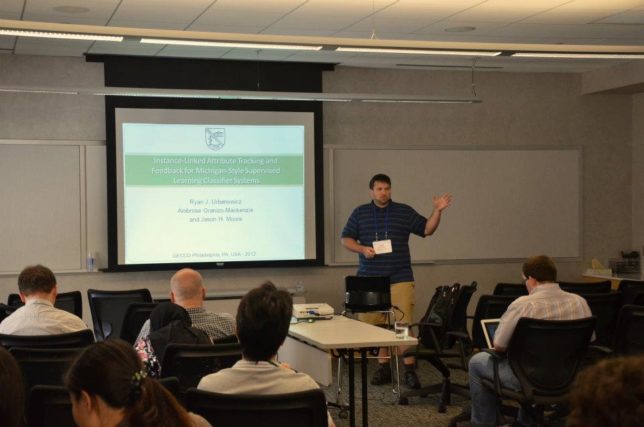
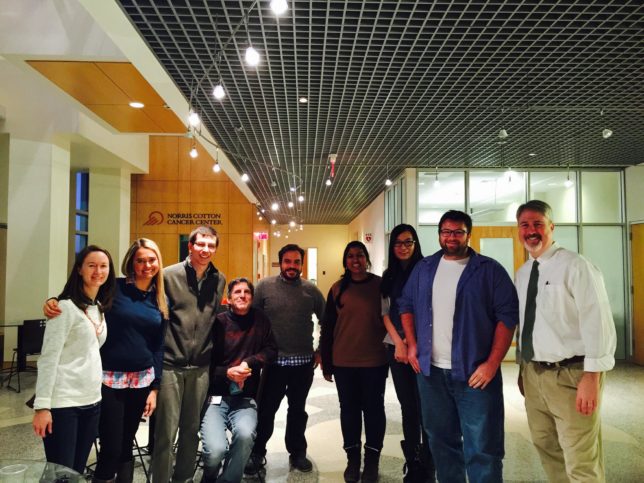
[Left: Giving a lecture on LCS at the University of Vermont (2014), Right: Group of past and present Moore Lab members (2013)]
In the fall of 2015, Ryan was invited by Dr. Moore to continue working in his lab as a research associate in his new position at the University of Pennsylvania in Philadelphia, PA. Ryan continues to develop new ideas to improve rule-based machine learning, as well working on research in feature selection/feature weighting, data simulation strategies, visualization methods for the new visualization studio named the “Idea Factory”, and applications of these methods to collaborations in disease research. Convinced of the importance of rule-based machine learning, Ryan also focuses on educating others and increasing awareness of these effective, but largely unknown and underutilized methodologies for detecting, modeling, and characterizing complex data patterns.
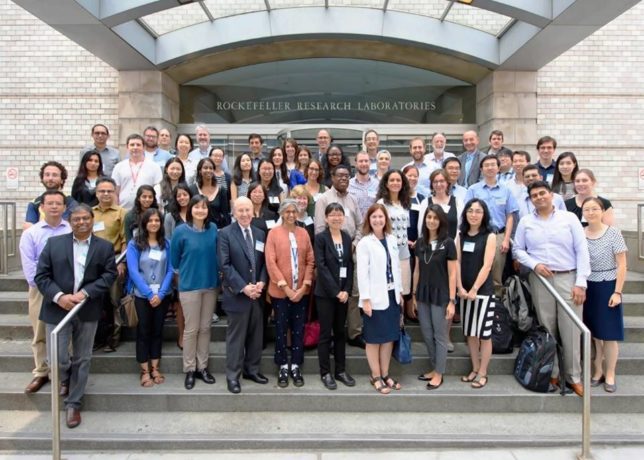
[Ryan (upper left corner) at a symposium hosted at the Memorial Sloan Kettering Cancer Center (2016)]
In 2016 Ryan released his first educational YouTube video for making the concept of rule-based machine learning accessible. Ryan and co-author Will Browne published the first introductory textbook on learning classifier systems in 2017.
In 2018, Dr. Urbanowicz began a position of Assistant Professor in the Department of Biostatistics, Epidemiology, and Informatics at the Perelman School of Medicine of UPenn. During that time he developed the course: Foundations of Artificial Intelligence, for which the lectures are available on YouTube, and his research focused on automated machine learning, feature selection, rule-based machine learning, and data harmonization.
In 2021, Dr. Urbanowicz accepted a new position of Assistant Professor in the Department of Computational Biomedicine at the Cedars-Sinai Medical Center in Los Angeles.